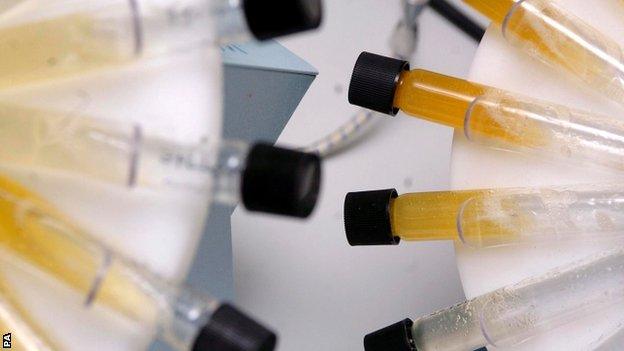Unnamed footballer served one-year suspension after testing positive for banned substance
- Published

A footballer tested positive for a banned substance while at Bury in 2019
An unnamed professional footballer was banned from participating in all sport for one year after testing positive for a banned substance in 2019.
UK Anti-Doping (Ukad) said a urine sample taken from the player on 31 January last year returned an adverse analytical finding.
According to Ukad's written reasons for the ban, the player was registered with Bury, who have since been expelled from the English Football League.
The ban expired on 31 January 2020.
The player had discussed applying for a therapeutic use exemption (TUE) for medication to treat a health condition with his club doctor, who the player understood would then make an application for a TUE on his behalf. However, no application was made prior to the test.
The Football Association independent regulatory commission, which heard the case, found the player's anti-doping rule violation was not "intentional' and he was at "no significant fault". The commission also noted that the player had provided "substantial assistance".
Ukad chief executive Nicole Sapstead said: "This is a very unusual case but one that demonstrates how important it is for athletes to take all steps to be personally responsible for their TUE applications.
"It highlights that an athlete is still ultimately responsible for what they have in their system, even when support staff are involved in their medication or treatment."
Earlier this month, Dr Andrew Johnson was suspended from all football-related activity for four years after admitting a Football Association charge of providing fraudulent information about a TUE when working as club doctor for Bury.
An application he made on behalf of an unnamed player to use a banned substance - understood to be testosterone - on medical grounds was dated December 2018.
Dr Johnson told the BBC in December 2019 that he was "ashamed" of his anti-doping rule violation and that he was "dishonest in retrospectively making an application to cover up" the issue.